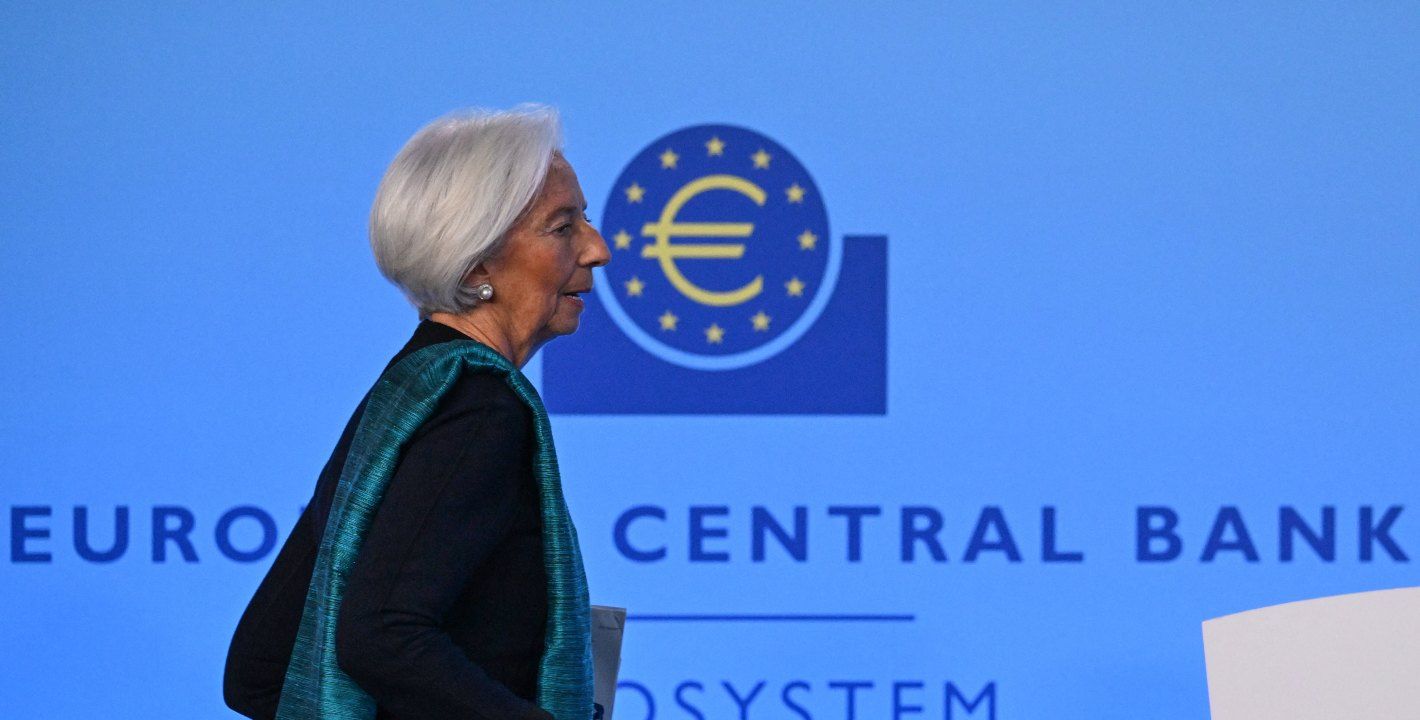Every week, a selection of leading experts answer a new question from Judy Dempsey on the foreign and security policy challenges shaping Europe’s role in the world.
Uri DadushSenior associate in Carnegie’s International Economics Program
Greece should not abandon the euro because if it did, it would be confronted with a catastrophic crisis. Even if, after two or three disastrous years, the country were able to regain competitiveness and grow again—which is likely—it would still not have resolved its underlying structural weaknesses and governance problems.
Athens should commit to step up its structural reforms.
Instead, Greece should insist on a deal that progressively restructures its debt to take the form of perpetual bonds carrying a low interest rate, say 2 percent. That would mean that the cost of servicing Greece’s interest payments, expressed as a share of GDP, would be near that of most of its eurozone partners. Greece should also demand more fiscal space to alleviate the effects of the crisis on the most vulnerable. In exchange, Athens should commit to step up its structural reforms and redouble its efforts to bring affluent Greeks into the tax net.
As for the troika of the European Commission, European Central Bank, and International Monetary Fund that manages Greece’s bailout, the negotiators need to recognize that Greece cannot escape its debt trap without an accommodation of this kind. Should Greece be eventually forced out of the single currency, the contagious effects—political and economic—on the rest of the eurozone would be severe.
Since the political grandstanding is all really about money anyway, Germany and the other eurozone partners should be pleased that, given their minuscule cost of borrowing in international markets nowadays, they will be making a tidy profit on the credit they extend to Greece in the foreseeable future. They will also have avoided outright debt forgiveness and, since the progressive debt restructuring would be conditional on Greece meeting its reform targets, increased the likelihood that Greece will one day emerge from its terrible crisis.
Andrew DuffFormer member of the European Parliament
A Greek exit from the eurozone, or Grexit, is illogical and improbable but not impossible. Both the Greeks and the Germans are known for their love of Logic: it would be a pity to confound admirers. But accidents can and will happen, especially in the heat of a media moment.
A #Grexit is illogical and improbable but not impossible.
The EU’s present confederal setup does not work: there is overcentralized coordination of national policies around rigid fiscal orthodoxy, sustained by feeble peer review.
Europeans need to learn to look at the eurozone as one economic polity, albeit with serious but not intractable problems of regional disparity and macroeconomic imbalance. A united economy has to be governed responsibly in a spirit of solidarity by a federal EU government capable of combining fiscal, monetary, and economic measures, with a decent budget of its own. That government, based on a reformed European Commission with a proper treasury facility, has to be strong enough to manage the gradual and progressive mutualization of sovereign debt, backed by the European Central Bank as the lender of last resort.
The theory is not so difficult. The problem is that the EU has no federalist proposal from either Athens or Berlin. So it’s Brussels to the rescue, then, Mr. Juncker—or Europe will end up like Argentina.
Christian OdendahlChief economist at the Center for European Reform
While Greece’s membership in the euro was a mistake in retrospect, a Greek exit is no option for either the country or the single currency. The eurozone might be able to stomach the short-term consequences of an exit, but a dangerous precedent would be set.
In a future political crisis in another member state, markets might start doubting the commitment of the core countries and of the European Central Bank (ECB) to preserve the integrity of the euro. At that point, the eurozone would be back in the self-fulfilling crisis mode that policymakers scrambled for years to leave behind.
There are good reasons for the Greeks to want to stay inside the #euro.
A careful politician like German Chancellor Angela Merkel, in the midst of a foreign policy crisis on Europe’s Eastern border, will not risk such a scenario—and nor will the ECB, which (for good reason) is structurally conservative.
Greece might benefit in the medium term from regained monetary autonomy outside the euro, allowing it to grow faster than it would otherwise. However, the short-term disruptions would be severe; the new Greek central bank would start with little credibility; and many of the structural problems of the Greek economy would remain unresolved, limiting the upside of a Grexit in the long term. There are good reasons for the Greeks to want to stay inside the euro.
Roderick ParkesScholar at the Swedish Institute of International Affairs and nonresident senior fellow at the Polish Institute of International Affairs
How times have changed. Five years ago, around the time of the first Greek bailout, I wrote an essay about states exiting political unions. Later that day, I received a message from the press team of Herman Van Rompuy, then president of the European Council. I was an idiot for raising the issue, the missive said (more or less), and not a particularly useful one. Fair enough: those were white-knuckle days.
Somehow, I don’t think Judy Dempsey will receive a rebuke from the press team of Donald Tusk—Van Rompuy’s successor—for probing the same issue. The euro crisis is now so routine that European politics students today learn crisis-driven policymaking just as my cohort was taught the co-decision procedure. German Chancellor Angela Merkel and Finance Minister Wolfgang Schäuble do their “inscrutable cop, grumpy cop” act. The Greeks have a game theorist in Finance Minister Yanis Varoufakis.
As the #EU is piloted along, the airplane's wings may just drop off.
It’s all become just a little too easy. Voters are kept permanently exhausted. National parliaments are threatened with extra responsibilities unless they toe the line. The European Commission is bought off with new powers to scrutinize national budgets. The British must watch their mouths.
So, no, I don’t think the Greeks are going quite yet. But as the EU is piloted along, charting a course through the turbulence and vaguely watching out for a black swan that might blunder into its jet engine, the airplane’s wings may just drop off.
Stratos PourzitakisPhD student at the Department of Government and International Studies, Hong Kong Baptist University, under the scholarship of the EU Academic Program in Hong Kong
The odds are that the time has not yet come for Athens to cross the Rubicon and exit the eurozone. Geopolitical calculations and the willingness of eurozone leaders to hold the EU project intact will keep Greece in the single currency—for now.
Should Greece’s creditors consider pulling the plug on the country in the following days, they will need to think about geopolitics. If Greece fails, the ongoing flirt between Athens and Moscow will evolve into an even closer partnership, with serious ramifications for the European political, economic, and security landscape.
What is more, most eurozone leaders, including the German chancellor, do not want to lose Greece during their tenure in office. Angela Merkel’s invitation to Greek Prime Minister Alexis Tsipras to visit Berlin and her efforts to ease tensions between the two countries are a clear sign that she will do, to quote European Central Bank President Mario Draghi, whatever it takes to save the euro.
It seems that a new political initiative is under way, and observers should expect a provisional compromise between Athens and Berlin—one that will provide Greece with liquidity in exchange for intense inspection and additional pledges for reforms.
The problem for Greece, however, is that in the long run, all these reasons are not enough to keep the country in the eurozone. During recent weeks, Athens has used questionable negotiation tactics and has overplayed the geopolitical card. The relationship between Greece and the eurozone has broken, and the road to restoring it will be long and bumpy.
A #Grexit is not the most likely short-term scenario but should not be ruled out.
Moreover, prevailing populism in Greece and radical voices in the coalition government will challenge the legitimacy of any agreement that deviates from the preelection agenda. To make things even worse, it remains highly questionable whether the Greek government will be able to achieve tangible results in its fight against tax evasion and promotion of structural reforms.
So a Grexit is not the most likely short-term scenario, although it should not be ruled out. In the medium to long run, however, bracing for impact could be an extremely helpful strategy.
Peter SpiegelBrussels bureau chief of the Financial Times
Most eurozone officials I talk to say that a Greek exit from the euro is by no means their preferred policy option. But what is clear to me is that their attitudes have changed since mid-2012, the last time the EU was confronted with the possibility of a Grexit.
#EU distrust with @tsipras_eu is even deeper than when he was elected.
Relations between Athens and the rest of the eurozone are much worse now than they were in 2012. Although many EU officials distrusted then Greek prime minister Antonis Samaras—and believed he had spent much of the preceding two years intentionally undermining their efforts when he was an opposition leader in the Greek parliament—they quickly decided he was a man they could work with after his election. Now, the distrust with his successor, Alexis Tsipras, is even deeper than it was when he was elected in January 2015.
Perhaps more importantly, many eurozone officials believe that a Greek exit is survivable. In mid-2012, there was a general fear the contagion following a Grexit could bring down Italy with it, and Italy was “too big to bail.” Now, many officials believe the crisis-fighting instruments that are in place—plus the European Central Bank’s massive sovereign bond–buying program—will protect the rest of the eurozone from knock-on effects of a Greek exit.
Paweł ŚwiebodaPresident of demosEUROPA
Frustration is understandable over the Greek question. The country’s population, which has suffered several years of recession, is justifiably angry about the results of imposed austerity. Greece’s creditors are annoyed about the mixed messages they are getting from Athens. But cynicism should not be allowed to take the upper hand.
The #EU's ability to turn countries around is one of its main strengths.
The geopolitical argument for keeping Greece in the eurozone is obvious, given the country’s location in the strategically important and constantly volatile corner of Europe. Yet something else is at stake: the EU’s ability to turn countries around. Historically, this has been one of the union’s main strengths. Giving up on one of the weaker member states would mean the end of the EU as a transformative project.
If there is one lesson from Central Europe in that context, it is the need to create conditions for countries to help themselves. Greece needs to feel it is in control of its own future. And it has to think big again—both about the type of society it wants to be and about the economic model it wants to create, based on a degree of sophistication necessary to compete on the world markets.
Greece’s European partners need to demonstrate that they care about more than squaring the immediate financial circle. They need to engage in debate with the Greeks, rather than showcase that they always have the moral high ground. Yes, everyone is tired of the crisis. But its decisive impact is only now becoming clear.
Ian TraynorEurope editor of the Guardian
The somewhat complacent view of a Grexit—most commonly aired in Germany, where exasperation with the Greeks is peaking—is that the EU could easily cope with this eventuality now, while it could not have at the height of the crisis in 2011–2012. Firewalls are in place, the contagion problem has been contained, and German ordoliberalism and fiscal rigor have been implanted in the eurozone’s DNA. The European Central Bank and its president, Mario Draghi, have saved the day. The risks have been mitigated and minimized.
Perhaps, in a strictly financial and economic sense—although no one really knows. But there are other risks, arguably bigger ones. Europe has seldom looked so frail and vulnerable on security, on foreign policy, on diplomacy. Anxiety is high. Self-confidence is low. Russian President Vladimir Putin is the main agent of Europe’s woes. No one will be happier than those in the Kremlin to see Greece go, and to see the EU further weakened.
Far better a #Greece on the inside than outside causing even greater trouble.
Putin has raised unpredictability to the level of state policy. Disaster is looming in Libya. In Turkey, President Recep Tayyip Erdoğan grows more authoritarian and inscrutable by the day. Europe’s soft underbelly, the Western Balkans, is less than stable. Then there’s the unresolved Cyprus question and the Macedonia naming dispute—not to mention the issues of foreign fighters and mass migration.
Greece is pivotal in this complex interlocking set of flashpoints. Neither side in the debt dispute is distinguishing itself from the other, with both engaging in loose language and brinkmanship. But far better a Greece on the inside than outside causing even greater trouble.









